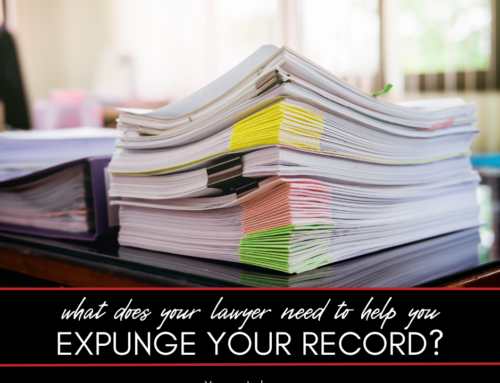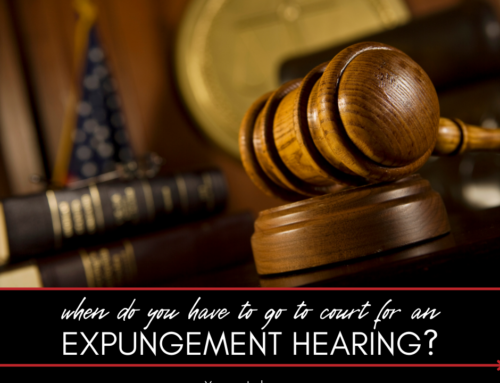If you have a criminal record, you probably already know that it can make your life harder in many ways. It can affect your chances of getting a job, finding a place to live, going to school, and pursuing certain careers. But there’s hope for a fresh start through a legal process called record clearing. This guide will explain how record clearing can help you begin anew.
The Impact of Having a Criminal Record
A criminal record can be a heavy weight on your shoulders, making things difficult in different parts of life:
- Getting a Job: Many employers check your background, and having a criminal record can make it tough to find work.
- Finding Housing: Landlords might not want to rent to you if you have a criminal record, limiting your choices for a place to live.
- Education: Some schools might not let you in or give you financial aid if they see your criminal history.
- Professional Licenses: Certain careers and jobs require you to have a clean record, which can make it hard to follow your career dreams.
The Benefits of Record Clearing
Record clearing, also known as expungement or sealing, is a legal process that can help you regain control of your life. Here’s how it can help:
1. Better Job Opportunities: Clearing your record can significantly improve your chances of finding a job. Employers are less likely to consider your past mistakes during the hiring process.
2. Access to Housing: It can make you a more appealing tenant to landlords. Plus, it can stop housing discrimination based on your criminal history.
3. Pursuing Education: Expungement can open doors to educational opportunities that were previously closed due to your criminal record.
4. Professional Advancement: Many careers need you to have a clean record. Clearing your record can help you chase your dream job and obtain professional licenses.
The Legal Process of Record Clearing
While record clearing offers many benefits, it’s essential to understand the legal process involved:
1. Check If You’re Eligible: First, you need to see if you’re eligible for record clearing. This depends on the type of crime, how much time has passed since your conviction, and whether you’ve met any sentence requirements.
2. Gather Required Documents: Next, collect the necessary documents like court records, sentencing information, and other paperwork related to your case.
3. File a Request: You’ll have to submit a request to the court asking for record clearing. The court will review your case based on eligibility and other factors.
4. Get Legal Help: It’s a good idea to get legal help because the process can be tricky. An experienced attorney can make sure your request is correctly filed and improve your chances of success.
FAQ About Record Clearing
Here are some common questions about clearing your criminal record for a fresh start.
How Long Does the Record Clearing Process Take?
The duration of the record clearing process is influenced by several factors, and it’s important to understand that it’s not a swift process. Here are some key considerations:
1. Court Schedules: The availability and caseload of the courts can affect how quickly your record clearing request is processed. Some courts may have a backlog of cases, causing delays.
2. Case Complexity: The complexity of your case can also impact the timeline. Complicated cases may require more time for review and decision-making.
3. Legal Representation: Having an attorney who focuses primarily on record clearing can expedite the process. They are familiar with the requirements and can ensure that your petition is correctly filed and presented, which can reduce processing times.
It’s essential to consult with an attorney who can provide a more accurate estimate based on your specific situation. While the process may not be immediate, it is a crucial step toward a fresh start.
Can Expungement Guarantee a Fresh Start?
Expungement offers significant benefits in terms of clearing your criminal record, but it’s essential to understand its limitations:
1. Improved Chances: Expungement can substantially improve your chances of getting a job or finding housing. Many employers and landlords are less likely to consider your past convictions after your record is cleared.
2. No Guarantees: However, expungement does not provide an absolute guarantee of employment or housing. Employers and landlords still have the discretion to make their decisions based on various factors, including your qualifications and other background checks.
It’s crucial to approach expungement with realistic expectations. While it can open doors to new opportunities, it may not eliminate all potential barriers.
What If I’m Denied Record Clearing?
If your record clearing request is denied, it’s not necessarily the end of the road. You may have options to explore:
1. Appeal the Decision: Depending on the laws and regulations in your jurisdiction, you may have the right to appeal the denial. An experienced attorney can guide you through the appeals process.
2. Explore Alternative Remedies: In some cases, there may be alternative legal remedies available to address the impact of your criminal record. Consulting with an attorney can help you identify and pursue these options.
3. Seek Legal Guidance: It’s highly advisable to consult with an attorney if your record clearing request is denied. An attorney can assess the reasons for the denial and determine the best course of action to achieve your goals.
Do You Need to Talk to an Indiana Expungement and Sealing Attorney?
If you’re ready for a fresh start, we may be able to help. Call us at 317-647-5476 or fill out the form below for a free consultation on expungement. We’re here to answer your questions and get you the fresh start you deserve.














